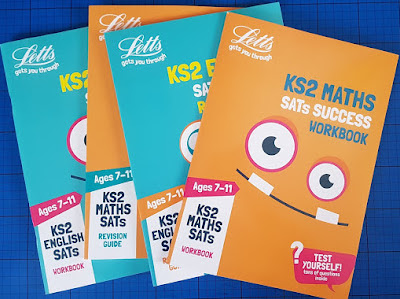It’s normal to want to be a part of your child’s academic life so you can help them excel. However, you can’t be there for every moment, including test days. With exam season coming up, stress levels will rise, so here is a helpful post from Marie Miguel, researcher and health writer at Better Help - where you can find a whole library of FREE advice to support your children's mental health.
Though you can’t help them during the test, there are some things you can do to help them prepare. Read on for some test prep tips that will help your kids excel. And when you’re finished reading this article, head over to BetterHelp to get more advice on tests and other parenting subjects.
Give Your Child Praise Where It Is Due
Boosting your child’s confidence will certainly help them during test time. In the weeks before a big exam, find opportunities to praise your child for their hard work and studies.
However, it is important to remember that you should praise their effort, not the achievement. For example, if your child received an A on their last quiz or test, praise them for their hard work to prepare, not the A itself.
Create A Calm Environment For Studying
Your child won’t concentrate if there’s a ton of noise in the house. If you know your child is studying for a big test, make an effort to calm some of the typical noise.
Keep the television to a quiet volume, don’t let any of the other kids blast music in their rooms, and discourage your dog from barking. Whatever noise your family deals with should be muted when your child is studying.
If this isn’t possible, you can also buy your child earplugs. Either foam or silicone earplugs are really good at blocking out most noise so your child can concentrate.
Participate In Preparation Where Possible
Depending on the subject, you may or may not be able to participate in your kids studying efforts. For example, if they just need to review some notes, they will do this best alone. However, if they need a buddy to help them with flashcards or timed exercises, then you can assist them with that.
Talk With Your Child’s Teacher
If you are concerned about your child’s current progress, discuss the issue with their teacher. The teacher will already know your child’s strengths and weaknesses in the classroom and offer guidance on improving their academic success.
Encourage Self-Care
All that hard work and prep won’t matter if your child doesn’t take care of themself before the big day. Make sure your child is getting plenty of sleep and eating well for the days leading up to the test.
This will probably be the hardest to enforce the evening before the test. It will be all too tempting for your child to stay up all night studying while eating nachos in their room. However, this can sabotage their efforts as they may be too tired in the morning to focus properly on the test.
Be strict about self-care during the last day or two before the test. Make sure your child goes to bed early and eats a healthy breakfast to set them off right.
Plan A Study Schedule
Children who cram before a test rarely do well, so it is crucial to plan ahead. If you know the date of the test, then start a study schedule either a few days or even weeks beforehand.
To further improve the schedule, you can assign certain topics or study activities per day. For example, if the test is on history, each day can focus on a particular event or set of events. Or, if the test is on maths, one day can be devoted to flashcards while another day can be focused on multiplication exercises.
Give Them Some Test Tips
There is an art to test-taking that not many children realize. The truth is that test questions don’t need to be answered in order, and some questions will be more important than others. Before the test, give your child some tips about how to test well, including the following:
- Read the directions carefully before starting. If your child doesn’t understand something, they should ask the teacher to clarify.
- For some tests, different types of questions are worth varying amounts of points. More time and effort should be focused on the questions that are worth the most points.
- Read the multiple-choice options carefully. It is very common for teachers to put two options next to each other that are very similar.
- If your child doesn’t know the answer to a question, they should skip it and move on. Otherwise, they can easily waste precious time worrying about that one question and possibly run out of time before finishing the test.




No comments:
Post a Comment
Thank you for taking the time to leave a comment. I read every one and try my best to reply!